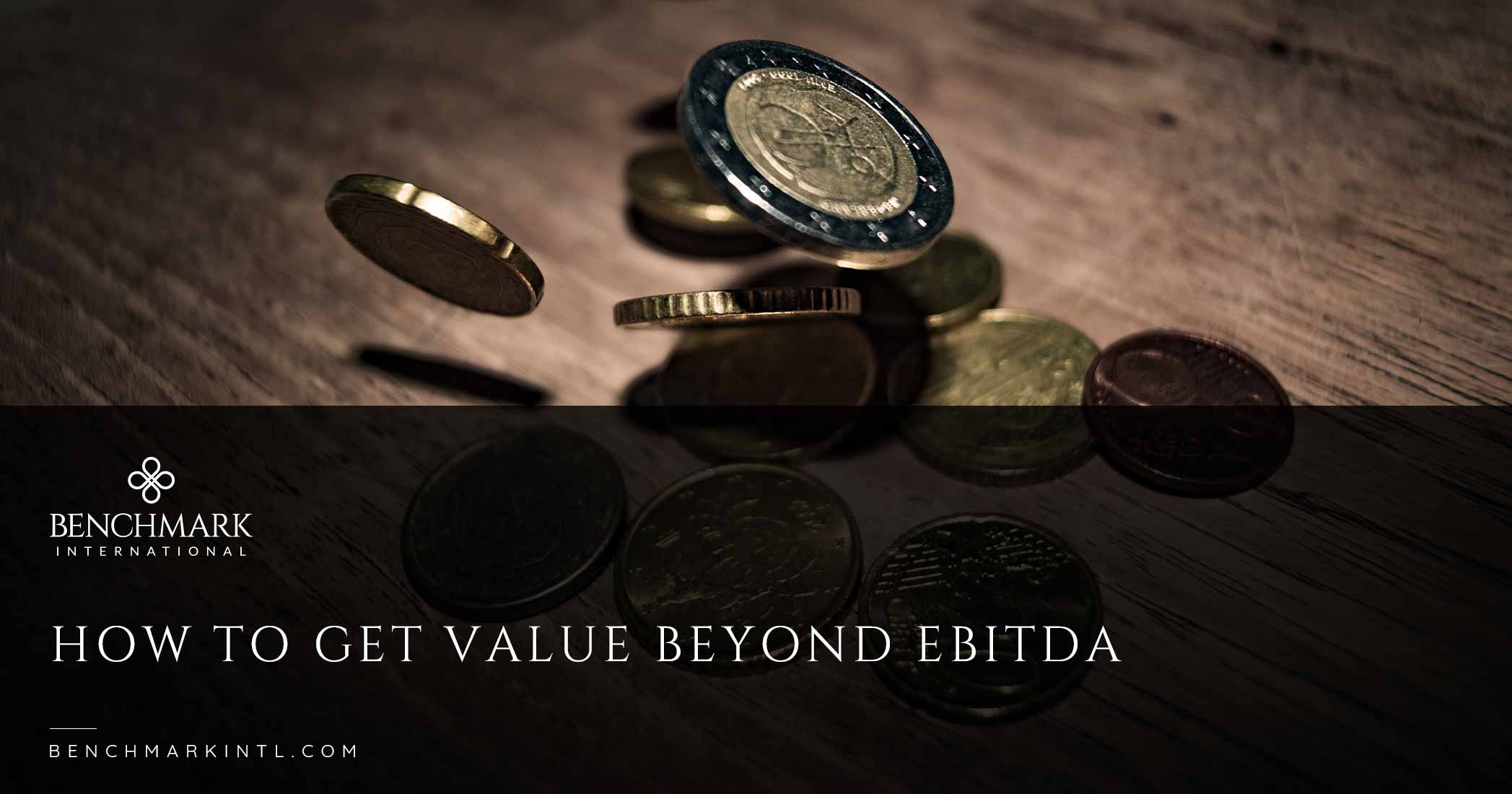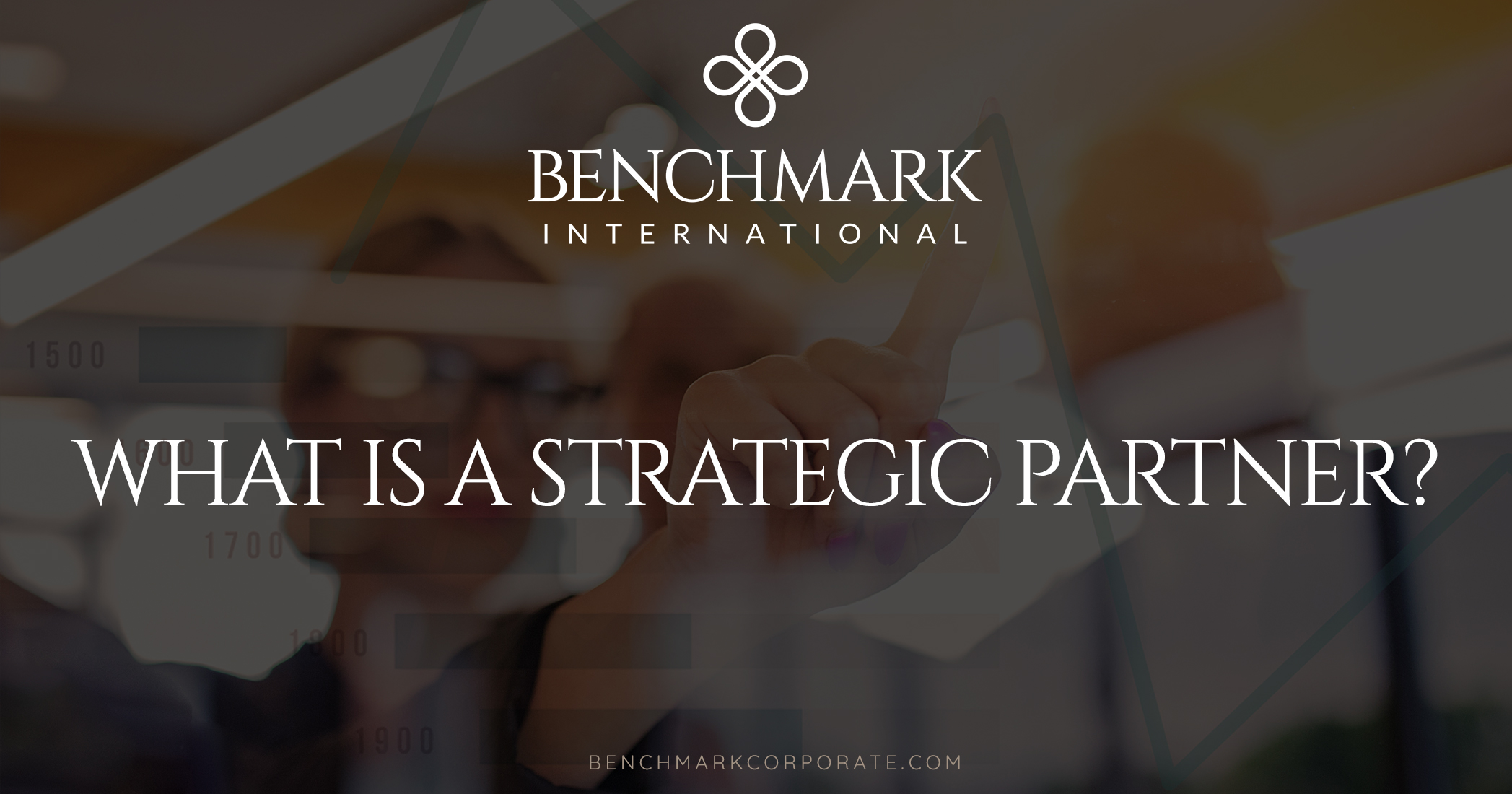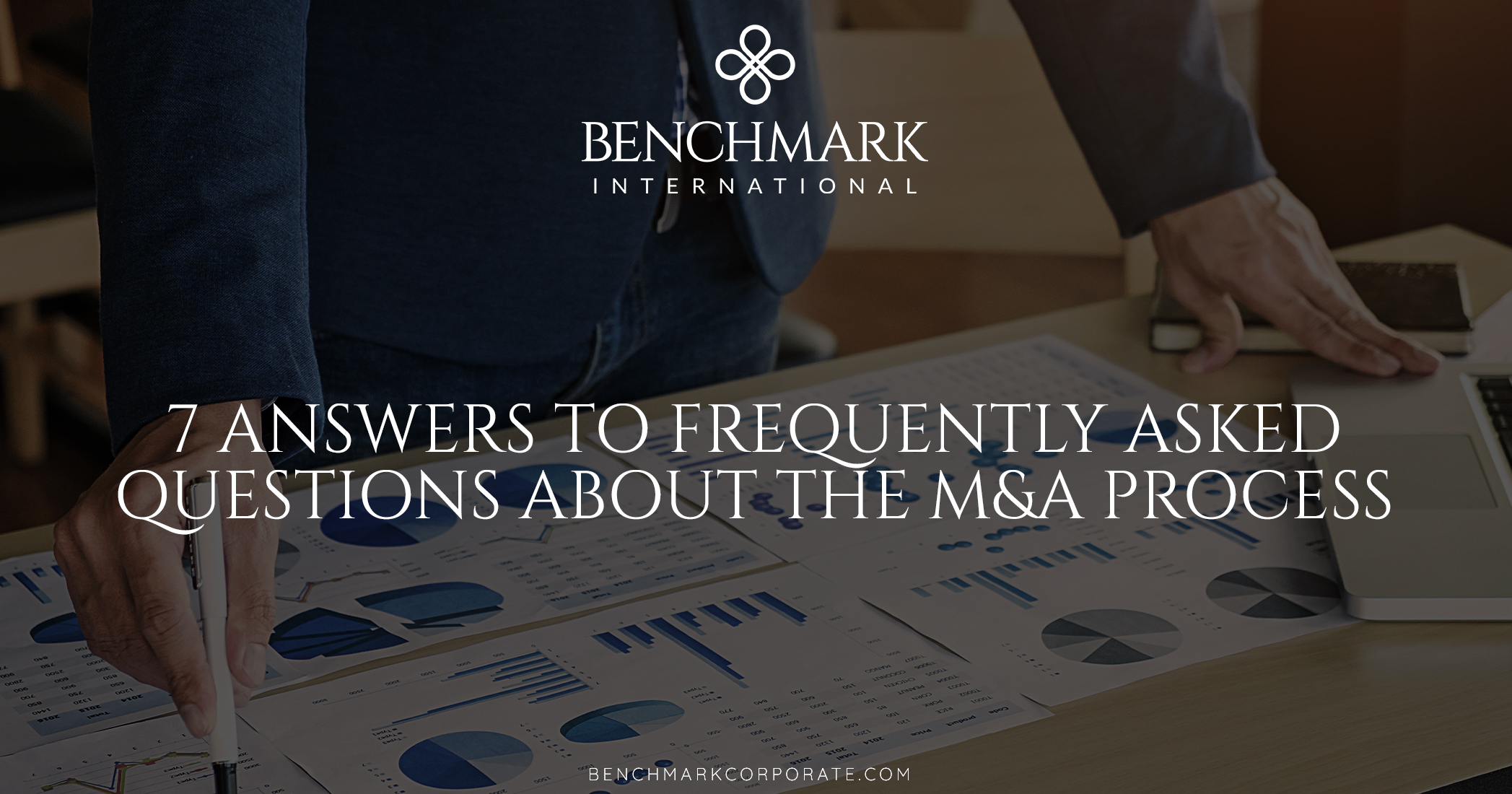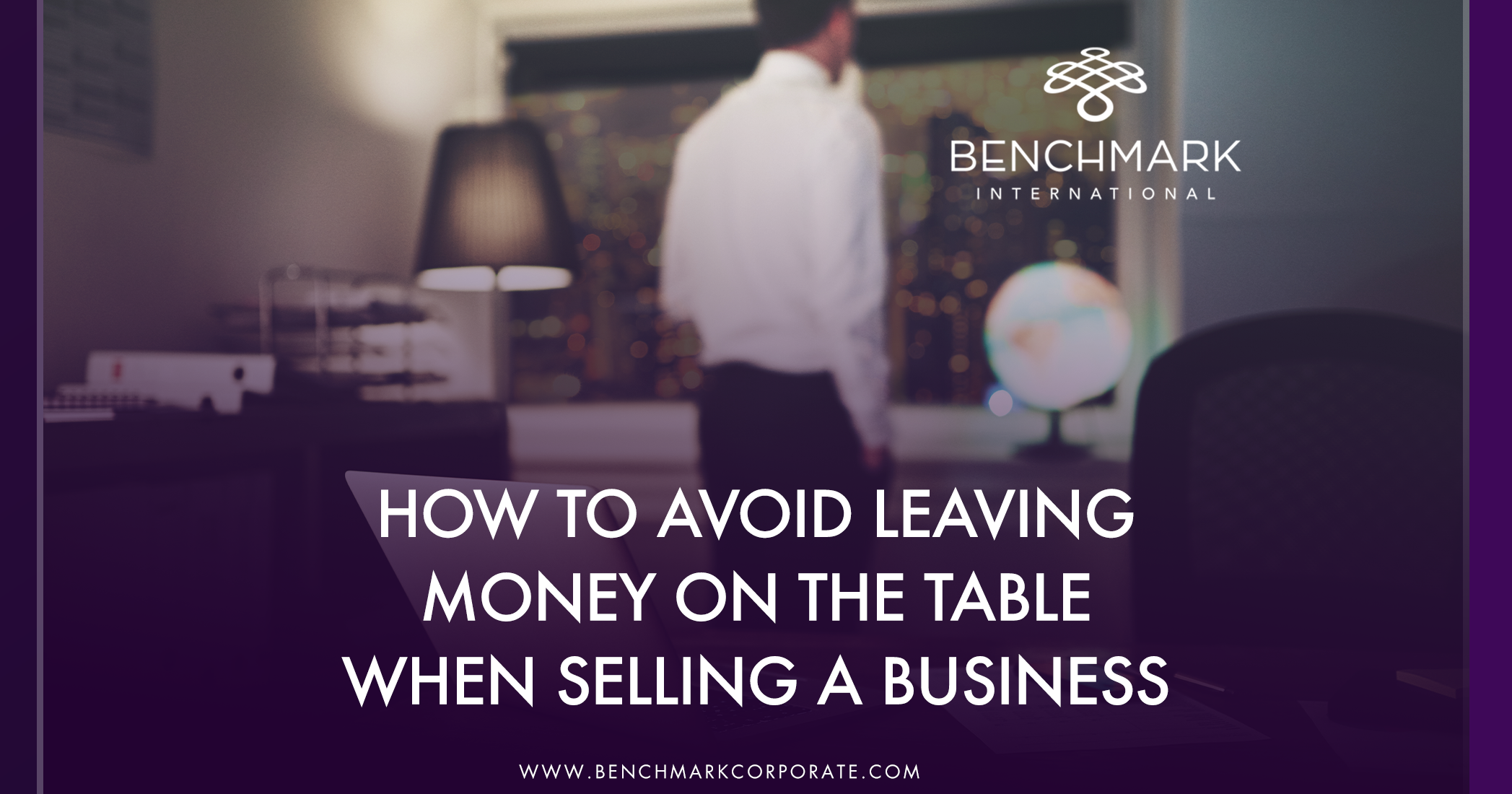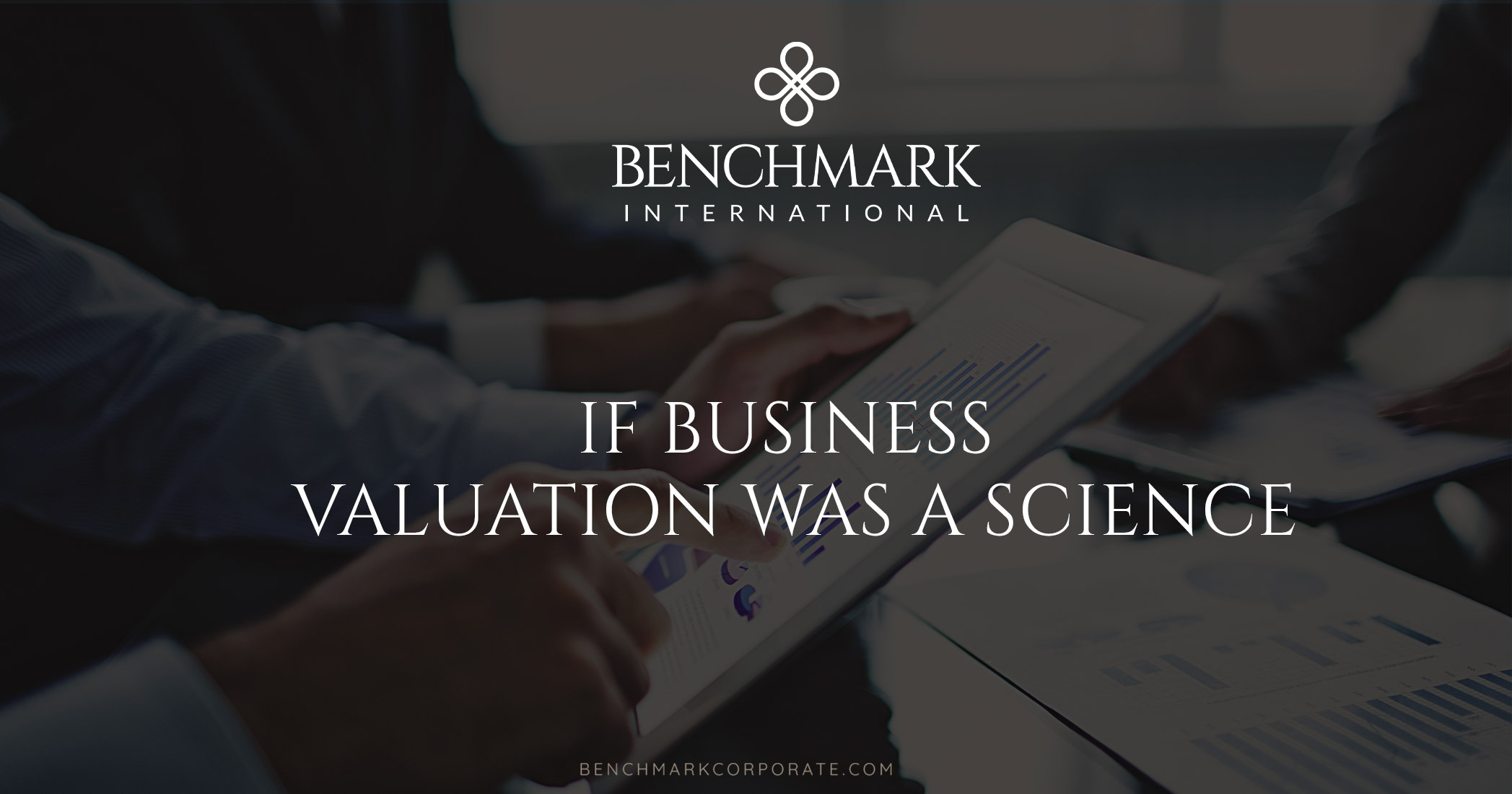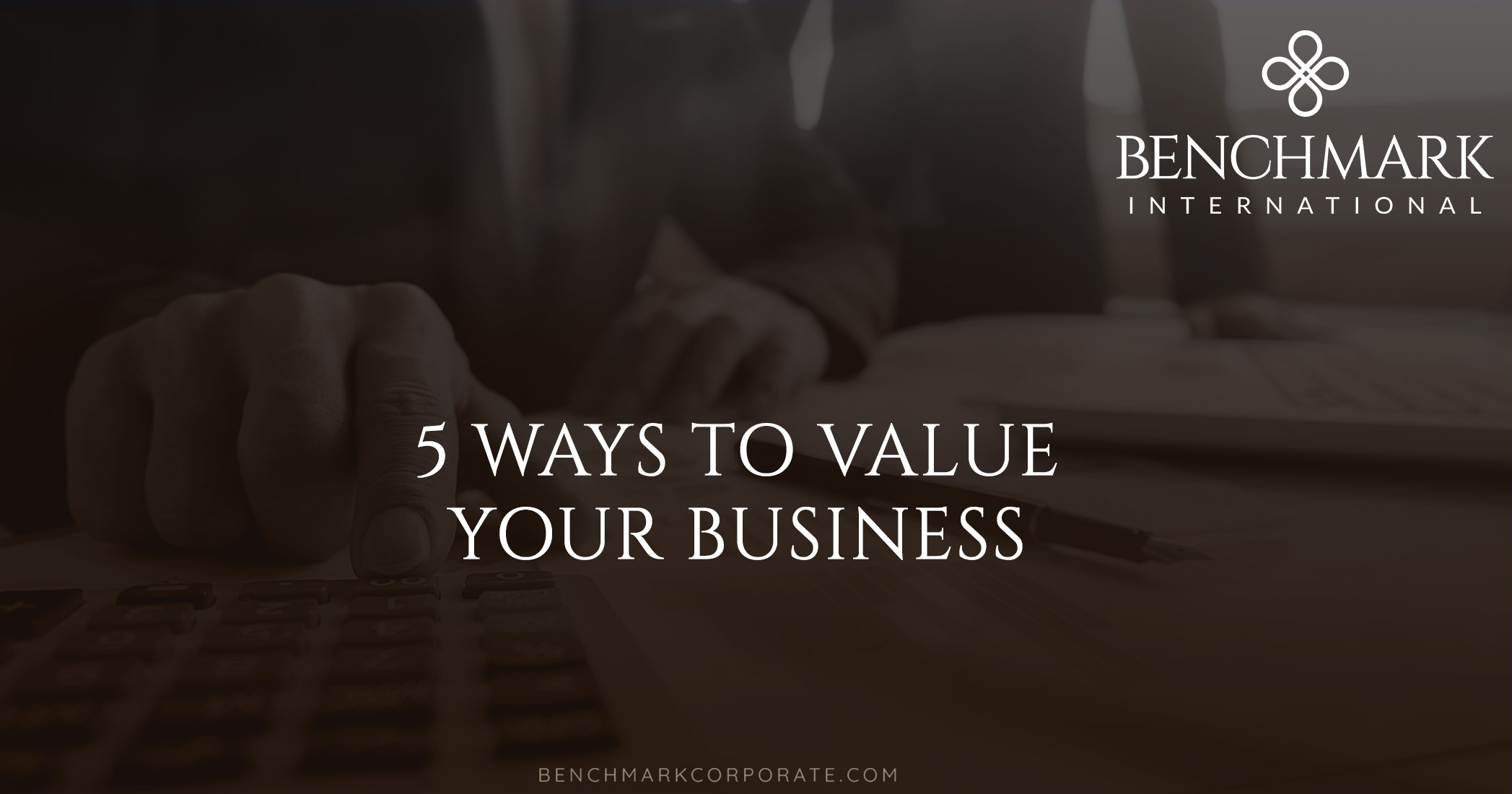It is essential to know how to correctly measure the long-term growth of your business because it is a key factor in determining an accurate company valuation, which determines how much money you can make in the sale or merger of your business.
READ MORE >>Archives
How To Measure Your Business’s Long-Term Growth
Benefits Of Acquisition
An acquisition is a transaction in which one company purchases another or a portion of its assets. The acquiring company, also known as the buyer, assumes control of the target company, the seller, by purchasing its stock or specific investments.
READ MORE >>Share this:
How To Get Value Beyond EBITDA
When selling a business, most owners focus on the bottom line, typically represented by EBITDA (Earnings Before Interest, Taxes, Depreciation, and Amortization). However, while EBITDA is an essential metric for valuing a business, it is not the only one that matters. There are other factors that potential buyers consider when evaluating a business, and as a seller, it is crucial to understand these factors to get the best possible value for your company.
READ MORE >>Share this:
The Value Of A Good Bookkeeper On Board During The Sale Of Your Company
No matter what business you are in, we all know that life becomes much easier when we have our finances in order. Whether preparing for Tax season, doing an audit, or ensuring that your business is operating at its highest potential, having accountable financials is vital. This becomes especially true when you are trying to sell your business. Not only do your financials need to make sense to you, but they need to be as attractive as possible to potential buyers. A key to making this financial transition as smooth as possible lies in the hands of one person: your bookkeeper.
READ MORE >>Share this:
Why Do I Need An Exit Strategy?
Don’t Delay
As a business owner, an exit plan is critical to preparing you and your company ready for retirement or your next act. Unfortunately, many business owners do not realize the importance of exit strategies, so they don’t feel like it’s worth taking the time to craft one. This is often a huge mistake. It doesn’t matter if you do not plan on selling or retiring soon. However, it’s wise to have an exit strategy for several reasons.
READ MORE >>Share this:
How Is Intellectual Property Valued?
Intellectual property (IP) is a non-physical creation of the mind or the product of a company's work or reputation. It is essentially ideas that are executed to become successful business assets and are often copyrighted, under patent, trademarked, or considered trade secrets, to protect from unauthorized use. Technology is a key IP type in our largely digital world and is a major driver of change and progress in nearly every industry. As a result, IP is a very important aspect of the valuation of a company. In our modern global economy, some countries recognize more IP types than others, as circumstances vary.
READ MORE >>Share this:
What Is A Strategic Partner?
A strategic partner is another business entity with which you form an agreement to share resources with the mission of growth and mutual success. There are different types of strategic partnerships.
- Horizontal Partnership: Businesses within the same field join alliances to improve their market position. Example: Facebook and Instagram.
- Vertical Partnership: Businesses team up with companies within the same supply chain (suppliers, distributors and retailers), often to stabilize supply chains and increase sales. Example: LiveNation and Ticketmaster.
- Equity Partnership: An investor acquires a percentage interest in a business, providing needed capital and sharing in profits and losses.
- Joint Venture: Two or more businesses form an entirely new legal entity in which the profits and risks are shared, and the original companies continue to exist on their own. Example: Microsoft and NBC’s creation of MSNBC.
- Merger: Two companies agree to go forward as a single new company and the original companies no longer exist. Example: Exxon and Mobil, now Exxon Mobil Corp.
- Acquisition: One company takes over another company and establishes itself as the new owner. Example: AOL and Time Warner, now Time Warner.
Why Do I Need One?
A strategic partnership can be an extremely powerful tactic that gives your business a competitive edge. According to a study by the CMO Council, 85 percent of business owners believe partnerships are essential for business success.There are several reasons why it is a commonly relied-upon growth plan.
- Expansion into new markets
- Increased brand awareness
- Product line extension
- Access to new customers
- Improved supply chain performance
- Added value for existing customers
- Acceleration of innovation
- Strengthening of weaknesses
- Sourcing of capital
A successful partnership must be built on a solid growth strategy and make sense from a capabilities perspective. The goals, values and culture of all partners should be aligned. You also need to have the right infrastructure in place. And the timing of the venture can be critical depending on the market. A partnership is a major endeavor and you absolutely want to get it right. Unfortunately, most organizations are not armed with the proper connections, resources and management capabilities to maximize the potential of a partnership. According to a report by the Business Performance Innovation Network (BPI):
- 43 percent of business partnerships have high failure rates.
- 45 percent are unable to maintain long-term, successful relationships.
- 42 percent of partnerships are not well leveraged.
- 67 percent of companies that agree to work together lack formal partnering strategies.
How to Get It Right
The smartest way to ensure that you are entering into a successful partnership is to seek the guidance of an advisor such as Benchmark International. We have the connections, experience, data-driven analytics, and knowledge to help you devise a carefully crafted growth strategy that is built on confidence and captures the most value. If you are a founder, an owner, an entrepreneur, or part of the leadership of an established company, we encourage you to reach out to us and start the conversation about how a strategic partnership can benefit your business.
READ MORE >>Share this:
7 Answers to Frequently Asked Questions about the M&A Process
When it comes to the M&A Process, sellers often times have many questions. Here is a list of 7 frequently asked questions about the M&A process.
READ MORE >>Share this:
What if you’re a business owner in the process of transitioning your business or considering a transition? How do you handle it?
Picture this for a moment: you’re up to bat with two outs, two runners on base and the Florida Championship on the line. Base hit up the middle scores one, possibly two, but if you pop up, ground out or strike out, it’s game over.
If you could visualize yourself in that situation, chances are you’re feeling a little nervous. Especially if you’ve never been there before. What if you’re a business owner in the process of transitioning your business or considering a transition? You’re up to bat with two outs and two runners on base – how do you handle it? Ideally, we’d all like to confidently drill the first pitch deep into the outfield to win the game, but what happens when the thoughts and concerns about the transition and life after the transition get in the way? Things might not work out as planned.
In the decades of serving high net worth and ultra-high net worth individuals and families, our team has worked with many who have made their wealth through the sale of the family business. Many of them were faced with a number of overwhelming thoughts and feelings: stress, anxiety, frustration, confusion and worry. Here are some of the questions we’ve often heard:
- Will this wealth be enough to sustain me and my family? How do I know?
- What about taxes? What’s the impact to me?
- How in the world am I going to invest this money to serve me and my family?
- What about my legacy and charity – how does all this fit in?
Finding the answers to these questions requires preparation. Unfortunately, many business owners are unprepared to address the complex financial decisions that need to be made for both themselves and their families both before and after the sale. Many would rather wait and leave the planning to another day. But a lack of planning and preparation has killed deals that should have closed, broken up families, and, in rare occasions, landed business owners in the hospital due to stress.
At BNY Mellon Wealth Management, we follow a collaborative, holistic, team-based approach to each business owner and family that we serve. Leveraging the strength and expertise of our global firm, we help provide clarity by working with business owners to implement:
Wealth transfer and tax mitigation strategies
- Pre- and post-sale cash flow optimization
- Pro forma net worth statements and estate flow projections
- Custom post-transaction investment strategies
- Family governance and next generation education plans
- Strategic philanthropy
Proper planning takes time, and having the right team of experienced professionals is critical to success. Armed with an experienced team who can assist with planning and preparation, you too can confidentially step up to the plate and win the game.
Author:
Christopher Swink
Senior Wealth Director
BNY Mellon Wealth Management
T: +1 (813) 405 1223
E: christopher.swink@bnymellon.com
Visit the BNY Mellon Website
READ MORE >>
Share this:
How to Avoid Leaving Money on the Table When Selling a Business
The sale of a privately-owned business is often the most significant financial event in the life of the owner. It marks the culmination of years of hard work and converts paper wealth into real wealth. It is a one-time opportunity with no do-overs. Every business owner surely desires the best economic outcome, yet, time and time again, business owners leave money on the table by not adequately preparing for the sale of their company. This article suggests five actions that private business owners can take to avoid leaving money on the table when selling their business.
READ MORE >>Share this:
Top Mistakes to Avoid When Selling
So you’ve made the big decision – you’re going to sell your business. This is likely a stressful time for you as have probably spent a lot of time and resource building up the company and may be nervous about seeing it pass over to new hands. So, from here on in, you would like to minimise the amount of stress involved by avoiding any mistakes which can easily be averted. The following are common mistakes to avoid and how Benchmark International can help:
Only Pursuing the Largest Acquirer
Surely pursuing the largest acquirer is in your best interests as they will be able to afford a premium for the company?
While they may be able to pay a premium for the company, they may not necessarily do so. An acquirer is likely to pay a premium for your company because there are synergies in place such as similar markets, products or customers that could be combined, but a large acquirer typically does not need to make the acquisition to enter these markets. An acquisitive party could also benefit from economies of scale and, therefore, will pay more for the target, but a large acquirer is unlikely to benefit from this. Even if a large acquirer is willing to pay a premium, they may absorb operations into their own company, which can cause complications for the handover, particularly if you are loyal to existing staff.
How Benchmark International Can Help: Look at all aspects of the deal and how it can benefit your company. Benchmark International can assist with sourcing the best fit for your company.
Not Looking at the Bigger Picture
You’ve just received an offer from a potential acquirer – on the surface of it, it looks good, surpassing your expectations. However, the structure of the deal as a whole needs to be considered, not just the total value. For example, the consideration could be deferred, or contingent on future earnings, meaning you are not receiving all cash upon completion. It is also important that if you do decide on a structured deal, that these elements are protected, ensuring you receive the consideration.
How Benchmark International Can Help: Benchmark International will thoroughly analyse all offers received, negotiate earn-out protections and can assess any contingent targets to ensure that the seller is able to maximise the consideration received.
Not Creating Competitive Tension
It can certainly be a benefit to enter into the M&A process with potential acquirers in mind, perhaps one of these has even approached you at some point. However, even though it may be tempting to dive straight into a deal with an acquirer that wants you and complements your company perfectly, it is still vital to create competitive tension by generating interest from other potential acquirers. If the acquirer in mind can sense that they are the only one with an offer on the table and that you are anxious to sell to them, they could take advantage of this with a low offer.
How Benchmark International Can Help: Benchmark International will employ an approach where all potential acquirers are approached and exhausted before accepting any offers.
Using an M&A Sector Specialist
This may seem like an odd ‘mistake’ to make – why wouldn’t you want to use an M&A specialist operating specifically in your sector, surely you don’t want a generalist?
The reasoning behind this is that a general M&A firm will be able to think outside the box and target a large pool of acquirers, not limiting itself to those just in your sector.
How Benchmark International Can Help: Benchmark International has a vast and growing number of contacts giving you the best chances of receiving multiple offers, as well as significant experience across a broad number of sectors, leveraging this to identify the areas where the greatest synergies can be exploited.
Leaving it Too Long
To obtain the best price and right fit for your company, it is crucial to enter the market at the right time. It is important to strike a balance between seeking to sell when the company is on a growth curve, but also not missing the window of opportunity in the market cycle. Equally, it is important not to sell when you become desperate (e.g. you are looking at retiring soon) as acquirers could become aware of this and lower their offer accordingly.
How Benchmark International Can Help: Look at selling earlier than anticipated, not when you want an imminent exit. Benchmark International can best advise on when the right time is
to sell.
Neglecting the Day-to-Day Running of the Business
M&A transactions can be time consuming, but it is important not to let it get in the way of running the business. If an acquirer is interested in the business because profits are increasing, or a new product is due to be released to the market, for example, and this does not come into fruition because you have taken your eye off the ball, then this could lead a buyer to renegotiate, or call the whole deal off.
How Benchmark International Can Help: The pressure of selling your business can be alleviated by Benchmark International as it will handle negotiations, leaving you to focus on running your company.
Not Negotiating Effectively at Critical Stages
Offers may go back and forth between yourself and the potential acquirer and at this point you are in a good position to negotiate. It is not until the Letter of Intent (LoI) is signed that the advantage swings to the buyer. Although the LoI is not typically legally binding it does usually stipulate a period where the seller cannot pursue further leads in the market (an exclusivity period), so competitive tension is lost. It is important, therefore, that you are completely happy with the terms (which can include such things as price, length of the exclusivity period etc.) before the LoI is signed to avoid either having to back out of a deal that could have been lucrative or being tied to a lengthy exclusivity period.
How Benchmark International Can Help: In all stages of negotiating, Benchmark International will do this on your behalf with your best interests in mind.
Author:
Lee Ritchie
Senior Director
Benchmark International
T: +44 (0) 1865 410 050
E: Ritchie@benchmarkcorporate.com
READ MORE >>
Share this:
If Business Valuation Was A Science…
Determining the value of your business is not as simple as looking at the numbers, applying tried and tested formulas, and concluding. Were it that straightforward all business valuations would be virtually identical. The fact that they are not is sure proof that valuation is not a science, it can only be an art.
If Mergers and Acquisitions (M&A) was as straightforward as calculating the theoretical value of a business, based on historical performance and using that to determine market value I would need something more constructive to do with my time.
Valuation is not as primitive as we have been led to believe. Whilst transaction values are commonly represented as a multiple of earnings this is merely the accepted vernacular used to report on a concluded transaction and almost never the methodology used to arrive at the value being reported.
The worth of a business is often determined by the category of buyer engaged. Financial buyers can add significant value to a business in the right stage of its life cycle but may not assume complete ownership, thereby delivering value for the seller simultaneously with their own. The right strategic acquirer for any business would be one that can unlock a better future for the business, and is willing to recognize, and compensate, a seller for the true value the entity represents to them.
Comparing the experience of so many clients, over so many years, and avidly following the outcomes of all the transactions published in South Africa there is little dispute that businesses are an asset class, like any other, and that the best value of all asset classes are only ever realized through competitive processes irrespective of whether the acquirer has financial or strategic motives.
1. The itch of business valuation
Simplistically, for the right acquirer - one seeking an outcome that extends past a short-term return on their initial investment - valuation is more a function of the buyer's next best alternative, than it is a businesses’ historic performance.
It would be naïve to think that the myriad of accepted valuation methodologies have no place in the process but identifying, engaging and recognising the benefits of the acquisition for a variety of strategically motivated buyers is essential in determining value in this context.
Considering a variety of appropriate valuation metrics, the parameters applied and then being able to balance these against the alternative investment required to achieve a similar outcome is where the key determinant of value lies. This is a complex process that unlocks the correct value for buyer and seller alike and it is a result that is rarely achieved without engaging with a wide variety of different acquirers and being prepared to "kiss a few frogs"
The most valuable assets on the planet are only ever sold through competitive processes where buyers have the benefit of understanding and determining value in the context of their own motives, having considered their available alternatives. It is for this reason that when marketing a business, it should never be done with a price attached.
2. An aggressive multiple
Whilst conventional wisdom is firm on industry average multiples, case studies abound, and the business community is regularly astounded by stated multiples achieved when companies change hands.
Beneath the glamour, the reality is that multiples are rarely used as a determinant of value, but almost without exclusion applied to understand it. Multiples represent little more than a simplistic metric that reflects an understanding of how many years a business would need to reliably deliver historic earnings in order for the acquirer to recoup their investment.
In the same way as a net asset value (NAV) valuation would unfairly discriminate against service businesses, multiples discriminate against asset rich companies. For strategic acquirers, with motives beyond an internal rate of return - measured against historic earnings - valuation is sophisticated. It relies on an assessment of whether the business represents the correct vehicle to achieve the strategic objectives, modelling the future returns and assessing risk. Valuation in these circumstances will naturally consider it, but places little reliance on the past performance of a business constrained by capital or the conservatism of a private owner to formulate the future value of such investment.
Whilst there are Instances where the product of such an exercise matches commonly accepted multiples, there are equally as many valuations that, on the face of it, represent unfathomable results.
3. A better tomorrow for the buyer
It would be irresponsible to advocate that that return on investment is not a consideration when determining value - corporate companies and private equity firms typically all have investment committees, boards and shareholders that assess the financial impact of any transaction. It is rare that such decisions are ever vested with a single individual, or that the valuation is derived from their personal desire to own a company or brand.
The art of valuation requires a reliable determination of the synergies between buyer and seller and an accurate assessment of the risks and benefits of the investment. Risk and reward are inherently related and skilled negotiation is required to find solutions that mitigate, or de-risk a transaction for buyer and seller alike, in order to underpin the value
of a transaction.
Financial buyers can be very good acquirers, especially in circumstances where they are co-investing alongside existing owners, staff or management to provide growth funding. When seeking a strategic partner for a business the acquirer should always be unable to unlock value beyond the equivalent of a few years of historical earnings. It is for this reason that the disparity between valuations by trade and financial buyers exists, and why determining the appropriate form of acquirer for any business is a function of the objectives of the seller.
4. Passing-on the baton, or living the legacy
The motives for a sale can be varied and extend from retirement to funding and growth, from ill-health to a desire to focus on the technical (as opposed to management and administration) aspects, of the business.
Value for buyers and sellers comes in many different forms. For sellers it is their ultimate objective that determines whether they have achieved value in a transaction. For sellers it may be as simple as the price achieved or it could extend to value beyond the balance sheet as diverse as leveraging the acquirer’s BEE credentials, unconstrained access to growth capital or even to secure a future for loyal staff.
For both local and international buyers alike, the intangibles may be as straightforward as speed to market in a new geography who would otherwise not readily secure vendor numbers with the existing customers of the target business. An acquisition may be motivated by access to complimentary technology, skills or distribution agencies to diversify their own offering. Whatever the motives, an assessment of the future of the staff will always be an important aspect to both parties.
There are few, if any businesses, that are anything without the loyal, skilled and hardworking people that deliver for the clients of a business. The quality of resources, succession and staff retention are all factors that weigh on a decision to transact. Navigating the impact of a transaction on staff is a factor that cannot be ignored and the timing of such announcements can be meaningful.
Author:
Andre Bresler
Managing Director
Benchmark International
T: +44 (0) 1865 410 050
E: Bresler@benchmarkcorporate.com
READ MORE >>
Share this:
Five Ways to Value Your Business
The first question you will probably want to ask when thinking about selling your business is – what is it actually worth? This is understandable, as you do not want to make such a big decision as to sell your business without knowing how much it could command in the market.
Below are five different ways a business can be valued, along with which type of companies suit which type of valuation.
Multiple of Profits
A common way for a business to be valued is multiple of profits, although this typically suits businesses that have an established track record of profits.
To determine the value, you will need to look at the business’ EBITDA, which is the company’s net income plus interest, tax, depreciation and amortisation. This then needs to be adjusted to ‘add-back’ any expenses that may have been incurred by the current owner which are unlikely to be incurred by a new owner. These could be either linked to a certain event (e.g. legal fees for a one-off legal dispute), a one-off company cost (e.g. bad debts, currency exchange losses), are at the discretion of the current owner (e.g. employee perks such as bonuses), or wages/costs to the owner or a family member that would be more than the typical going rate.
Once the adjusted EBITDA has been calculated this figure needs to be multiplied; this is typically between three and five times; however, this can vary – for example, a larger company with a strong reputation can attract towards an eight times multiple.
This provides an Enterprise Value, with the final ‘Transaction Value’ adjusted for any surplus items, such as free cash, properties and personal assets.
Asset Valuation
Asset valuation is suitable way to value a business that is stable and established with a lot of tangible assets – e.g. property, stock, machinery and equipment.
To work out the value of a business based on an asset valuation the net book value (NBV) of the company needs to be worked out. The NBV then needs to be refined to take into account economic factors, for example, property or fixed assets which fluctuate in value; debts that are unlikely to be paid off; or old stock that needs to be sold at a discount.
Asset valuations are usually supplemented by an amount for goodwill, which is a negotiable amount to reflect any benefits the acquirer is gaining that are not on the balance sheet (for example, customer relationships).
Entry Valuation
This way of evaluating the value of a company simply involves taking into account how much it would take to establish a similar business.
All costs have to be taken into account from what it has taken to start-up the company, to recruitment and training, developing products and services, and establishing a client base. The cost of tangible assets will also have to be taken into account.
This method for valuing a business is more useful for an acquirer, rather than a seller, as through an entry valuation they can choose whether it is worth purchasing the business, or whether it is more lucrative to invest in establishing their own operations.
Discounted Cash Flow
Types of companies that benefit from the discounted cash flow method of valuing a business include larger companies with accountant prepared forecasts. This is because the method uses estimates of future cash flow for the business.
A valuation is reached by looking at the company’s cash flow in the future, and then discounts this back into today’s money (to take into account inflation) to give you the NPV (net present value) of the business.
Valuing a business based on discounted cash flow is a complex method, and is not always the most accurate, as it is only as good as its input, i.e. a small change in input can vastly change the estimated value of a company.
Rule of Thumb
Some industries have different rules of thumb for valuing a business. Depending on the type of business, a rule of thumb can, for example, be based on multiples of revenue, multiples of assets or of earnings and cash flow.
While this method may have its merits in that it is quick, inexpensive and easy to use, it can generally not be used in place of a professional valuation and is instead useful for developing a preliminary indication of value.
To summarise, the methods of valuation can very much vary in terms of complexity and thoroughness, and different industries will find different methods more useful than others. A good M&A adviser can best suggest which way to value your business, as well as help to counter offers in the latter stages of the process with an accurate valuation in mind.
Author:
Tony Yerbury
Director
Benchmark International
T: +44 (0) 1865 410 050
E: Yerbury@benchmarkcorporate.com
Share this:
I’m Thinking of Selling My Company, How do I Value My Business
So, you are entertaining the thought of possibly selling your business. How do you know what it’s worth? There are a lot of factors that go into deciding an asking price for your company. The market, the industry, and the level of risk can all affect the final value. The following guide will walk you through a quick rundown of the valuation process for middle-market businesses and help you gain a basic understanding of what your company might be worth.
Step One: Have Your Finances in Check
 Benchmark International
Benchmark International  Benchmark International
Benchmark International 


